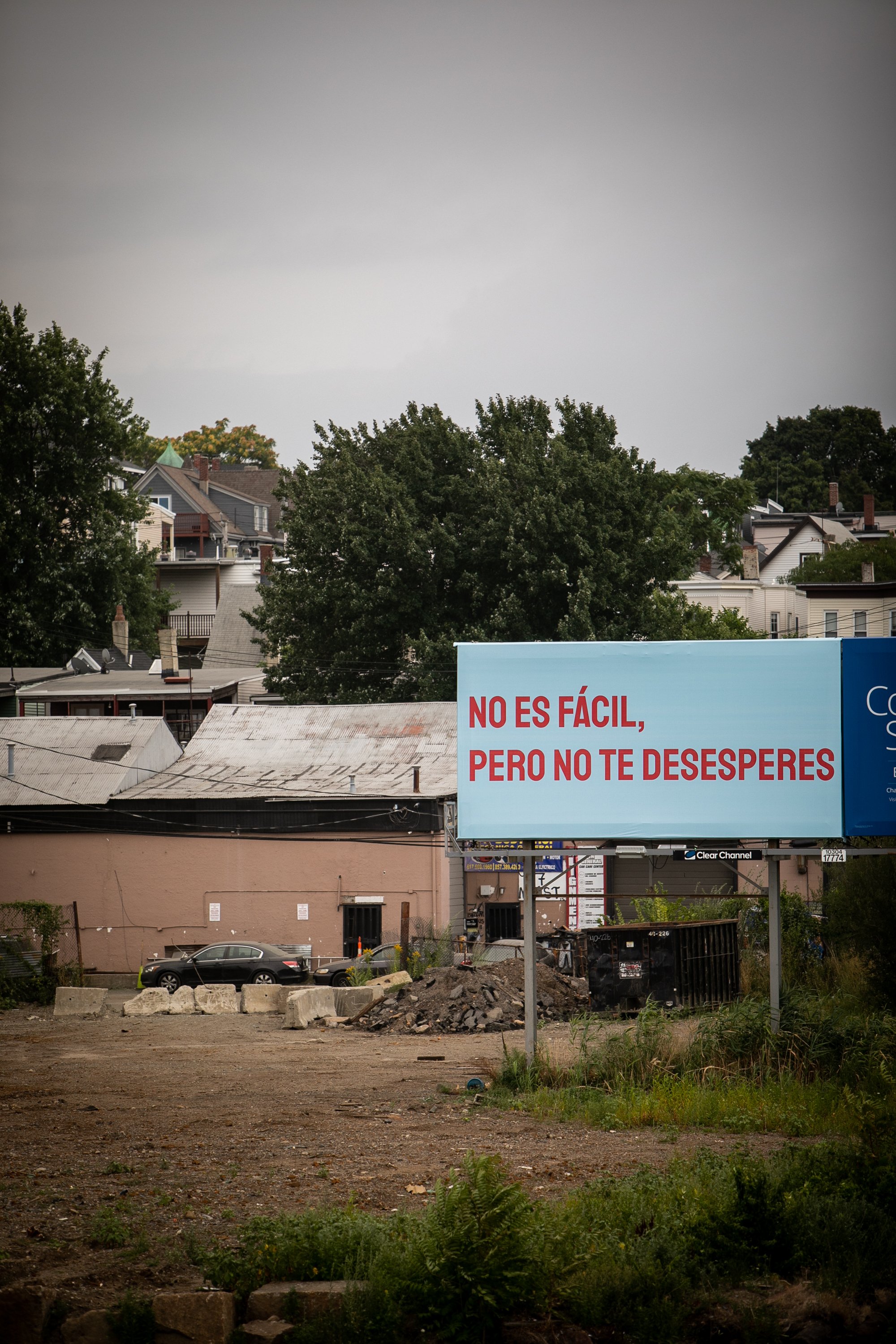In this guest post, N+T Curatorial Assistant Jasper A. Sanchez decodes and takes inspiration from Ponle Vuelo A Tus Sueños/Let Your Dreams Take Flight.
Since its opening in late June, Yenny Hernandez’s Ponle Vuelo A Tus Sueños/Let Your Dreams Take Flight has been inspiring visitors to Prudential Center with colorful words of encouragement and tropical imagery. Yenny uses colors and references from Latin American culture and nature to elevate her message of inspiration, communicating a feeling of uplifting that words alone cannot. Having moved to Boston from Miami to pursue my own dream of being a curator, this installation has been an encouraging reminder of the rich visual culture that shaped my upbringing. Yenny’s bilingual messaging and symbolism is intentionally geared towards Boston’s Latin community, where she hopes that the colorful birds and marigolds remind those in the Latin diaspora like myself, where they’re from, the dreams they’re working towards, and the ancestors that got them this far.
As I look up at Yenny’s message, I am reminded of the impact that monumental text and language-based artworks can offer the public and how artists around the world and in Boston have similarly employed the power of words. New York based Jenny Holzer’s neo-conceptual “word art” is widely recognized for poetic, political, and personal messages that have been shared on everything from benches to skyscrapers since the late 1970’s. While more recently and locally, a 2020 alum of the N+T Public Art Accelerator, artist Gabriel Sosa placed much-needed words of hope and empathy on billboards around Greater Boston during the height of the COVID-19 pandemic for his project No es fácil/It ain’t easy.
Ponle Vuelo A Tus Sueños/Let Your Dreams Take Flight stands out from this canon of word art in that it employs more than just text for its motivational message. Yenny’s Puerto Rican and Latin heritage is influential to her style and practice, and her use of colorful imagery is meant to uplift you as much as the words themselves. A Caribbean inspired color palette, symbolic flora and fauna from across Latin America, and even a traditional stovetop coffee maker amplify Yenny’s bilingual encouragement to follow one’s dreams.
Aesthetically, Ponle Vuelo a Tus Sueños/Let Your Dreams Take Flight is a refreshing splash of tropical colors contrasted against Back Bay’s brick red landscape and reflective silver skyscrapers. Yenny’s color choices are inspired by Caribbean cities like Puerto Rico’s historic Old San Juan, which is known for tangerine, pink, and aquamarine buildings from the Spanish colonial era. Coastal towns around the world have histories of commerce as fishing towns, resulting in the use of brightly colored paint left over from fishing boats to stick out visually on shorelines for sailors. Lighter colors also deflect heat in warm climates, helping interiors remain cooler. Imagine yourself as a sailor and Boylston Street as the ocean, and Yenny’s mural easily starts to feel like the welcoming, vibrant town at the end of a long voyage.
Deep blues and luscious greens anchor the pastel accents, grounding the color palette with richer tones inspired by the flora and fauna of tropical rainforests. The colors of the lettering in the artwork, a complementary blue and yellow, are framed by palm leaf greens and a soft hibiscus red. Taking flight in the front and center is a Red-and-Green Macaw, whose scarlet body and iridescent plumage is recognizable from across South America. Yenny’s message to let our dreams take flight is further illustrated by the fluttering movement of a Ruby-throated Hummingbird on the other side of the mural. Included throughout are Mexican Marigolds, known as Cempazúchitl in the indigenous Nahuatl language. Used as a medicinal and ceremonial plant since pre-Hispanic times, the orange marigold is now widely associated with cultural celebrations in Mexico like Day of the Dead and, and in Yenny’s words, “represents a connection between ourselves and our ancestors.”
Yenny’s usage of cultural symbols is not limited to nature and landscape. A core element of the artwork is a cafetera, a traditional household coffee maker. Invented in 1933 by Alfonso Bialetti and known as a moka pot, the portable steel espresso maker is of Italian origin but became widely popular in Europe and Latin America after the Second World War. Yenny was partly inspired to use a cafetera because coffee is a major export for many Latin American countries, with Brazil being the world’s largest producer. She also associates coffee and coffee makers with kitchens – which she considers the heart of the home – full of memories of mothers and abuelas brewing with their families. The beauty of coffee here is its cross-cultural relevance and universality, as it is brewed in an array of ways across the various cultures of Latin America and in the United States. Colombia has its tinto, Costa Rica has café chorreado, Cuba has its cafécito cubano, while us Bostonians have classic American coffee (with a Dunkin’ on nearly every block). Yenny is paying tribute to the shared ritual of starting a day with a cup of coffee, alluding to the energy boost caffeine provides at the start of a day along with flying birds and warm colors to uplift anyone who encounters Ponle Vuelo A Tus Sueños/Let Your Dreams Take Flight.
Understanding how images and language shape our everyday lives, text-based public art invites people to stop, to listen to that voice inside their head as it reads, and to feel and reflect on meaningful words in a world that can be oversaturated by advertisements and messages we easily overlook. Whether it’s Jenny Holzer reminding us that “ALL THINGS ARE DELICATELY INTERCONNECTED,” Gabriel Sosa’s empathetic billboards recognizing “It Ain’t Easy, But Keep Going,” or Yenny’s rallying “¡Pa’lante Mi Gente!” (Onward my people!), artists continue to creatively showcase how words can be a powerful tool in rewriting and reimagining public space for the betterment of everyone.
N+T Curatorial Assistant Jasper A. Sanchez uses his background in art history and diaspora studies to research and conceptualize diverse, accessible public art & programs.



